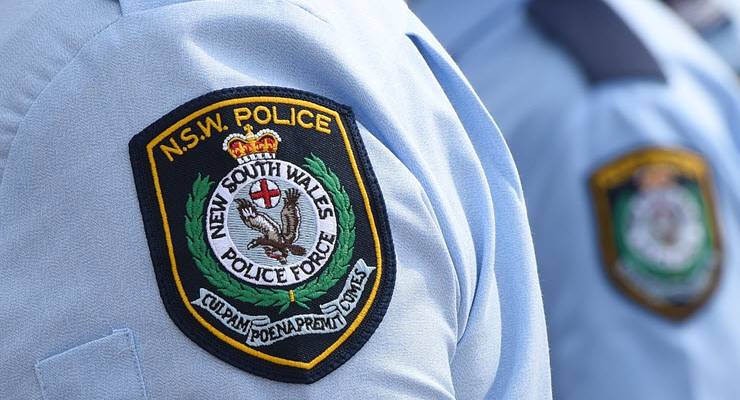
Hundreds of police officers in New South Wales, Victoria and Queensland have been accessing and disclosing personal information over the past two years, including one officer who used police databases to access his partner’s information.
Crikey has obtained data through freedom of information (FOI) requests that reveal 1474 reports of unauthorised disclosure and unauthorised access of information were filed over the 2018-19 and 2019-20 financial years.
A lack of independent oversight means that this kind of misconduct is not being disincentivised, Flemington and Kensington Community Legal Centre’s police accountability project’s principal solicitor Gregor Husper says.
“Breaches of privacy will persist until we have a police oversight system that is independent and robust,” he said.
Hundreds of reports, no standdowns
Requests made to the police forces of Australia’s three most populous states show that each agency had hundreds of unauthorised access and disclosure reports across the two years.
Victoria Police revealed that its 205 reports resulted in eight suspensions, six admonishments, 31 discipline sanctions, three management actions, eight criminal charges — and zero officers being stood down.
It tells Crikey that each reported information misconduct incident was not a malicious act: “Several previously reported incidents [are] relating to officers or staff departing the organisation unknowingly taking … information written in notebooks or stored on other devices.
“Victoria Police treats our information access and disclosure obligations with the utmost importance. The overall rate of these incidents occurring is quite low, especially when considering Victoria Police has over 22,000 employees.”
NSW and Queensland police did not release detailed statistics on disciplinary responses to the 716 and 553 information misconduct reports in each respective state.
However, an FOI containing internal investigation reports by NSW Police’s professional standards command includes an unpublicised allegation of an officer making “unauthorised COPS [police database] accesses on his partner”.
The officer was suspended but the incident is not mentioned in the section of the FOI capturing incidents that resulted in criminal charges during the same period. It is possible the officer was charged during a different time period or that the case was redacted from the documents. NSW Police declined to comment.
Both the Queensland Crime and Corruption Commission’s (CCC) report and a 2019 report by the Victorian Independent Broad-based Anti-corruption Commission (IBAC) into information misuse found significantly higher reports of information misuse in the police compared with other government agencies.

Key: Queensland Police Service (QPS) Queensland Corrective Service (QCS) Department of Education (DoE) Department of Trains & Main Roads (TMR) Department of Health (DoH) Gold Coast Hospital & Health Services (GC HHS) Mackay Hospital and Health Services (Mackay HHS)
CCC’s 2020 Operation Impala report, which examined public sector information misuse, found examples of unauthorised accesses and disclosures ranged from “employees viewing records associated with themselves, neighbours, friends, celebrities, politicians, current or former partners, family members or relatives” to being “targeted by organised crime groups, and sometimes private investigators, to provide confidential information”.
Queensland Police tells Crikey: “We value information privacy and are committed to ensuring that personal information contained within our systems is treated with confidence and not accessed inappropriately by our members.
“At the conclusion of Operation Impala, the QPS accepted 10 recommendations which are currently under review.”
Widespread misconduct with little oversight
Recent cases of police information misconduct have ranged from police accidentally and deliberately leaking information to domestic violence victims’ partners, and an abusive policeman learning of his partner’s escape plan through an unauthorised disclosure.
FOIs obtained by the ABC last year revealed that 55 officers across Australia were charged with domestic violence-related offences in 2019.
“Police information abuse is most particularly in cases involving family violence and predatory sexual behaviour by police officers,” Husper said.
Victoria Police’s professional standards command responds to police complaints. A 2018 IBAC report found that 95% of these audits “did not explicitly address potential or actual conflicts of interest between investigators and subject officers”.
“There’s obviously an inclination or desire on the part of some police to improperly access information and, as with other areas of police misconduct, there’s insufficient disincentive because of an absence of independent oversight. They know they are not going to be subject to robust review,” Husper said.
IBAC only investigates 2% of cases, he says, a disappointing number, says IBAC commissioner Robert Redlich. He released a statement criticising the 2020-21 Victorian state budget for allocating only $27 million over four years to the effort.
“I am most cognisant, however, of the expectations of the community, Parliament and other stakeholders for IBAC to do more,” Redlich said.
“These increased service levels cannot be delivered, even with IBAC’s recent allocation of funding.”







TMR = Department of Transport and Main Roads